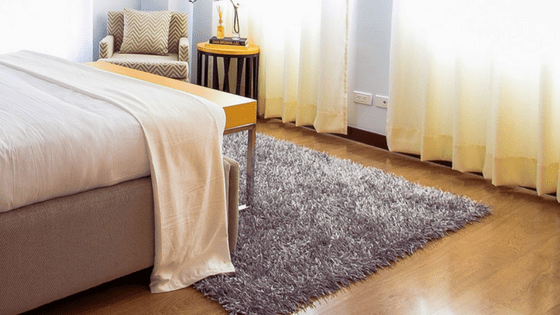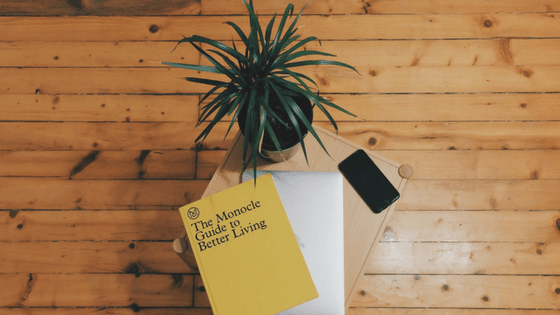Hardwood flooring is a popular choice for homeowners today. If you are making the switch to hardwood flooring, it is important to make sure that you’re choosing the best flooring for your needs. There are some questions you should ask when you are shopping for hardwood flooring.
1. What flooring is right for me? Solid or engineered?
Both solid and engineered wood flooring are made from real wood, making them environmentally friendly. Choosing between the two starts with understanding where you’ll be installing the floors.
Solid wood flooring is a solid piece of wood throughout. The thickness can vary, but generally solid wood is a good choice for any above-ground room. Many people choose solid wood flooring because of its longevity. This flooring option can be sanded down and refinished many times. But, solid wood flooring cannot be used in basements.
Engineered wood floors are real wood flooring that is created by combining layers of wood veneers. The grain runs in varying directions, making engineered wood flooring very stable. The wood beneath the visible service may be from different species, all combined to strengthen your floor. Engineered flooring is simpler to install, it can be installed right over concrete. This makes it perfect for basements. But engineered flooring cannot be refinished as many times as hardwood can.
2. Which species of wood should I choose?
The type of wood species you choose will depend on your style, budget, and preferences. Do you prefer lighter or darker floors? Are you looking to make your home look more open? Are you trying to create a more refined style? Your answers to these questions will help influence the type of species you choose for your hardwood flooring.
It’s also important to make sure that you’re choosing a wood species with the right strength features for your flooring. The Janka scale helps to rate wood on its solid construction and dent-resistance. It can help you determine which species offers the strength your flooring needs.
3. Should I choose factory-finished or site-finished flooring?
Each finishing method has its own features and drawbacks. Customization level and budget will influence your choice on this matter.
Many people choose a site-finished floor when they are looking for true customization. The floors are finished in-home, on-site once the installation is complete. This allows for personalization of finishes and styles. While site-finished flooring is totally customizable, it can be a messy job .The task of finishing floor can be loud, and it can create dust in your home while the job is underway.
Factory-finished flooring, on the other hand, offers less mess with installation. Because these flooring planks are finished at the factory, they come ready to go. This means you won’t be able to customize as many aspects of your sealing, but you will be able to use your floors immediately after installation rather than waiting for the finish to cure.
4. Which finish offer style and protection for my flooring?
There are many options for finishing floors today, including gloss, semi-gloss, stain, and matte. The type of finish you choose will depend on your style and your floor use needs. For example, if you need to protect your hardwood from scratches from pets, a matte or less glossy finish may be ideal. The less sheen, the less obvious small scratches will be.
Area rugs placed around your home can also help prevent major scratches or wear. These rugs can bring added style while protecting your flooring from pet damages. For high traffic spaces, consider placing runner rugs to keep the flooring safe from scuffs and scratches.
5. How quickly will my floors be installed after I order them?
The timeframe of your installation, order, and job completion will all depend on many factors. The type of flooring you choose, such as site-finished or factory-finished, will influence the turnaround time. Contact your local hardwood and tile store in Dallas to learn more about hardwood options and delivery timeframes. Remember that after being delivered, many flooring materials need to acclimate to your home’s environment and temperature before installation can begin.
6. How do I keep my wood floors from fading over time?
The type of finish you choose and sun exposure are two major factors that can lead to fading of hardwood flooring. Additionally, the species itself can change more than others. Consult your flooring professional for a flooring recommendation that won’t change colors as quickly. More common species such as oak and hickory won’t change color as much over time.
Other tips include protecting your flooring with the right finish. Some finishes can fade faster than others. Consider using better curtains or UV window protections to help keep your hardwood flooring in better shape.
7. Why do I need to call a professional for hardwood flooring installation?
Many people want to save a few bucks by attempting their hardwood installation themselves. But, this is ill-advised. Installing hardwood is incredibly complicated. First, you need to know what it means to center the room. You also need to know how much space is required for expansion gaps, along with proper work arounds for obstructions.
Hardwood flooring is an investment both in installation and material costs. But it is even costlier if you attempt a poorly planned DIY flooring installation. Cutting mistakes, improper gaps, and poorly applied finishes can ruin your hardwood flooring. Instead, leave the installation to the professionals so you can rest easy in the quality of your flooring and its professional installation.
 Kaboutjie SA Mommy Blogs by Lynne Huysamen
Kaboutjie SA Mommy Blogs by Lynne Huysamen









Bear in mind that wood floors are affected by the weather – whether it is dry or damp. A good professional can advise on this, just remember to ask about the effects of the weather on that specific type of wood you choose.
Thanks for listing some questions that I must ask when considering hardwood flooring installation. Actually, I am indecisive if I should go for this type of material for our new home or what my sister chose instead. Good thing I came across your article. I had no idea that major factors that can lead to the fading of hardwood flooring are type of finish and sun exposure. With that, I must then ask the professional installer about recommendations on how to make it last.